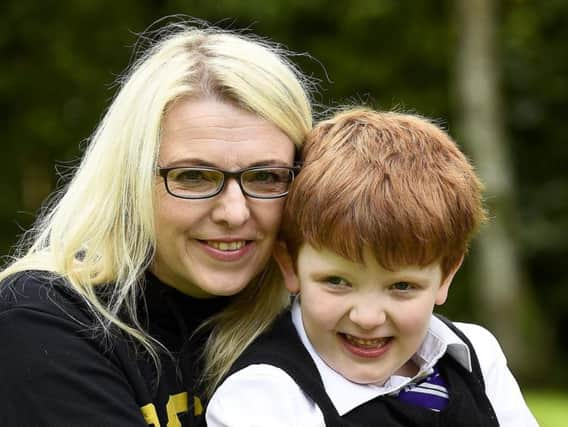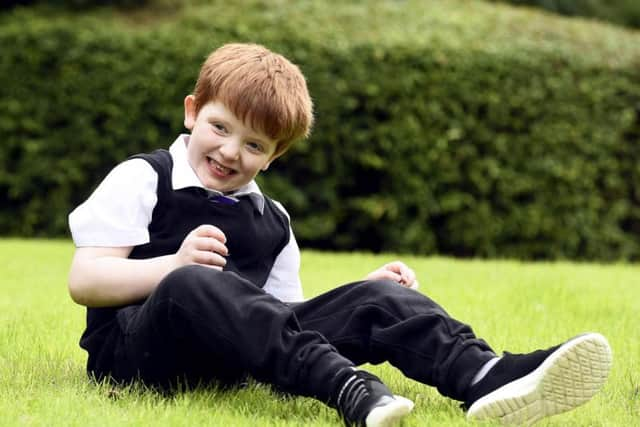'Desperate' Scottish mother to go on hunger strike for son's cannabis treatment


Karen Gray, 44, from Edinburgh, uses oil from the whole cannabis plant, illegal in the UK without a license, to treat her son Murray’s rare form of epilepsy.
But the treatment of Bedrolite and Bedrocan costs £1,200 a month, which Ms Gray has been sourcing via donations since Murray was given the prescription by a Dutch doctor in March.
Advertisement
Hide AdAdvertisement
Hide AdMs Gray has lobbied the government for an NHS prescription to fund the drug along with other mothers in the same situation as part of the campaign group End Our Pain.


Twenty families wrote to the Prime Minister in September to demand NHS prescriptions and government funding to cover the costs in the meantime, but received no response.
Now Ms Gray and at least 17 other mothers plan to go on hunger strike from November 1 outside Downing Street to put pressure on the government.
“We’re at a desperate situation, we’ve absolutely had enough. We feel like we’ve got no option and we have to do something drastic,” Ms Gray said.
“The government needs to step in and provide funding until the prescriptions are sorted out,” she said.
Ms Gray would like the same provision granted to her son as to Alfie Dingley, who was granted an exception by the Home Office in 2018 to give NHS funding for the whole plant cannabis oil he takes.
British law was changed last year to allow prescription of medical cannabis, but only containing cannabidiol (CBD), not tetrahydrocannabinol (THC), which is the active ingredient in whole plant cannabis oil.
The British Paediatric Neurology Association says that THC may negatively affect brain development, structure and mental health.
Advertisement
Hide AdAdvertisement
Hide AdMurray received his first course of Epidiolex, a legal drug containing CBD, in August 2018. It appeared to work, but the positive effects subsided after three months and Murray was admitted to hospital in January unable to “eat, talk or walk.”
Gray said she thought her son “was going to die”, until a Dutch doctor prescribed a drug containing THC. Murray began treatment on Bedrolite in March, and Bedrocan in May.
Now Murray is a ‘changed wee boy’, at school full-time and taking part in normal play and other activities despite his Doose syndrome.
Ms Gray currently has just enough funds to pay for Murray’s treatment until the end of the year.
She recently took part in a sponsored walk across the Forth Road Bridge, and will attend a fundraising Race Night in November.
“It’s difficult, I don’t like asking people for money but I’ve got no choice,” she said.
A Department of Health and Social Care spokesperson said: “We sympathise with those families dealing so courageously with challenging conditions.
"The law has been changed to allow specialist doctors to prescribe cannabis-based products for medicinal use where clinically appropriate. However, there is a clear consensus on the need for more evidence to support such prescribing decisions.
Advertisement
Hide AdAdvertisement
Hide Ad“Government is working with the health system, the industry, researchers, and others to improve the evidence base for these products and to provide clinicians with further support and guidance on prescribing these products where clinically appropriate.”